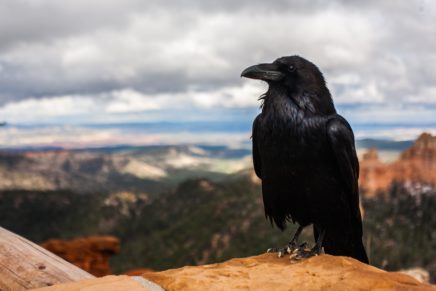Welcome to the place where the cheerleader dances with the devil at midnight in the Garden of Eden.

When the sun kisses the earth good-night, the shadows stretch in anticipation of morphing together across the landscape for the coming of Night.
One darts across the slope and it takes a moment for my mind to realize it’s a wild rabbit rather than an inky pool of darkness moving on its own accord.
At least, I think it was. Nothing to be afraid of, right?
I breathe in the sweet night air before plunging into the dark side of the world we live in.
Our world is one of duality. We could not know light without darkness, day without night, pleasure without pain, up without down.
It’s also a world defined by our perceptions, for we see what aligns with our beliefs. This does not mean however, that what we do not see or believe, does not exist.
Upside Down in the Garden of Eden
Growing up we lived next door to neighbors we heard but rarely saw.
They often mumbled to themselves as they shuffled down the dirt path that paralleled our backyard, running alongside thick juniper firs and winding around the back perimeter of our property to another home, occupied by the mother’s sister.
We spied on them as children, wondering what secrets they kept that held their tongues.
Was it the grave in their backyard covered by white sheet metal and marked with a roughly hewn cross?
Perhaps a stillborn child that had stolen their tongues in death. Above, crows called to each other from the trees as if keeping watch, cawing whenever we dared poke through our backyard juniper firs to explore.
Despite their warnings, I did. Often.

The worn path through a beautiful tangle of mysteries and magic compelled me. It was overgrown with wild garlic cloves and vine-like flowers that twined through the trees and blackberry brambles creating naturally formed arches.
I never ventured over to the mound of earth or near the house, for that took bravery beyond what I held in my small body.
Yet it was my first experience with temptation of the forbidden, midnight in the Garden of Eden, a place of beauty where I questioned death, superstition and what lay beyond my ability to see.
The Downside of Up
I don’t have the gift of sight like my mother. She tells me she often sees her own mother at the kitchen sink, washing dishes.
Grandma died some 20 years ago and while seeing her brings my Mom comfort, it would straight up freak me out.
Yet I’m equally fascinated by it. And I’m clearly not the only one.
Filmmakers and amusement parks capitalize on our fear with great success. We love the adrenaline rush of facing Jason in Friday the 13th sequel #105 or plunging to a fictional death on a roller coaster.
But when it happens in real life? Let’s try to rationalize it as something else fast.
Repeated movement out of the corner of our eyes and we rationalize it as a need to see an eye doctor or a neurologist.
A visible chill sweeps through the room and we think there’s a window or door cracked (we search, there’s not).
Lights flicker and we suspect it’s a faulty wire or an electrical surge. Maybe but in my experience? Doubtful.
Being raised Catholic, these paranormal experiences and others have generated a lot of questions for me.
If at the moment of death, souls are judged and sent to Heaven, Hell or Purgatory, then why do we have so many lost souls shifting in the shadows of our world instead of hanging out with lion and lamb in the Garden of Eden?
The stories we tell help define us
I explored many of these questions to form the backdrop for my supernatural thriller,
Hotel California. I can’t give it all away, but I can offer you an exclusive glimpse only found here:
If she had been anything like the mythical preacher’s daughter prancing about like a rebellion hellion in eucharistic frocks, Mary might have flipped a bird at anyone she caught casting a judgmental stare in her direction but this was not the case.
Mary O’Malley was a good girl. She had been named for the mother of our Lord and lived her life in such a way that suggested she might have been worthy of the namesake but one moment of temptation changed all that.
If you were to ask her what she’d been thinking that day she agreed to get in the car after school with George Ryan she might softly say she didn’t know and you could see in her eyes that was the truth of it. She didn’t know.
She didn’t know because no one told her that people can be a real paradox, even to themselves. That by their very nature no one is wholly good or wholly bad. That in every good and every bad there is a vein of its opposing force that runs through our very being carving character and shaping destiny dependent upon the strength of our moral fiber.
Had Mary O’Malley known that her own father had sowed his wild oats with Sandra Horton behind the church in his altar boy robe long before becoming a minister, that he was still haunted by dreams of her and sought release between his wife’s pudgy thighs, that he couldn’t meet his daughter’s eyes not out of shame but out of recognition for the fire he saw burning there, perhaps she wouldn’t have landed at the gates of insanity in the attempt to avoid the fires of Hell.
Hotel California©2018 Valerie Heidt
The desire to derive meaning from our existence is the basis for the stories we tell.
Folklore, mythology and generational tales told around the campfire are all part of interpreting and relating to the world around us. We believe ourselves to be a modern society well beyond stories and fairytales but our history says otherwise.
Most of our beliefs, superstitions and colloquialisms today have been passed down from hundreds, even thousands of years ago.
One need look no further than The Bible. On a global scale it has shaped our moral compass. On a symbolic level, the general fear of snakes in our own Garden of Eden harkens back to Genesis.
The rituals we affiliate with Halloween and many of our major Christian holidays derived from Celtic Paganism in Britain and other parts of Europe. We carve jack-o-lanterns, bring Evergreen trees into our homes and paint Easter eggs based on these ancient practices, many superstitious in nature.

Most people are superstitious about the number 13. Some say it got a bad rap because Judas the betrayer was the 13th person to sit down at The Last Supper, others because 13 witches are required for a coven.
Regardless of the reason, even today most high-rise buildings and hotels don’t have a 13th floor.
And why is it that we still affiliate the highly intelligent crow and raven with witches, graveyards and death?
Crows and ravens appear repeatedly in mythology and movies from the first Biblical films to faithful familiars of the villain in Disney fairytales like Maleficent (2014) with Diablo (Devil).
We’ve outgrown all that, right?
Personally, I think the lovesick Mockingbird singing on our chimney all night is far more disturbing than a murder of crows or a conspiracy of ravens in the backyard Eucalyptus trees.
But like everything else here, that’s only one girl’s perception. And maybe I’m just telling myself that so I can sleep at night.
Leave a Reply